Sponsored by JT&A, inc. and supported by all EMC supporters. Additional thanks to these individuals joining in support this year: Jody Bickel • Hillary Bonham • Greg DeYoung • David Godley • Kyle Gunderman • William Lucas • Carter Newt • Dan Nifong • Elizabeth Robinson • Jesse Robinson • Edwin Stanford • Ryan Winter! Presented by Carlene Taggart Bahler, Chair, EMC Steering Committee

Mayowa Aderoju, JFT Mentor and Inclusion Award Recipient. Mayowa Aderoju is a dedicated researcher and environmental activist hailing from llero, Oyo State, southwestern Nigeria. He holds a master’s degree in the field of Plant Pathology from North Dakota State University. As an enthusiastic plant pathologist, he is actively engaged in research which promotes sustainable agriculture, he schedules tour guides for 4H students and conducts field trips for visiting regional and international collaborators. Mayowa is currently an ambassador of PargonOne advocating for Climate Conservation and Agricultural Sustainability through grass root education and outreach programs in collaboration with The Nature Conservancy and National Geographic Society on how human and climate change can impact “Fresh Water and Marine Conservation”. Being an active member of the Citizens Climate Lobby, he was delegated as a junior climate lobbyist to participate in the lobby day at the US Capitol Hill, where he had the opportunity to interact with congressional leaders on advocating for CBAM bill and other environmental-related policies. On a final note, he believes that “Through collective efforts of environmentalists, together, we can leave a positive impact on the world, ensuring a better future for generations to come!!!”
Andrew MacKenzie, JFT Collaboration Award Recipient. Andrew is a West Virginia University graduate student pursuing an M.S. in Wildlife and Fisheries Resources and a Certificate in University Teaching. Andrew received his B.S. in Wildlife and Fisheries Resources at West Virginia University with minors in Agriculture and Natural Resources Law and Conservation Ecology. He interned at Gator Country in Beaumont, Texas, focusing on community outreach and education of southeastern amphibians and reptiles and assisted in data collection of Wood Turtle abundance and movement within the Allegheny National Forest. Andrew’s graduate research aims to assess the ecological impacts of wetland restoration techniques used in West Virginia riparian wetlands. In addition, Andrew has 1) led wood turtle aquatic surveys; 2) coordinated a wetland restoration project with student volunteers; 3) worked on the Mountain Valley Pipeline as a Lead Avian Field Biologist; and 4) assisted in wetland delineation surveys. He serves as the Educational Committee Chair of the Society of Wetland Scientists Student Section, has assisted in advising the Ducks Unlimited Mountaineer Chapter, and served as secretary of the Division of Forestry and Natural Resources Graduate Student Association. Andrew was inducted into the Clemson University Kennedy Waterfowl and Wetlands Conservation Center Graduate Student Partners Program and has received awards from the Society of Wetland Scientists, the ’22 North American Biochar & Bioenergy Conference, National Association of Wetland Managers, and Winous Point Marsh Conservancy.
Sponsored by JT&A, inc. and supported by all EMC supporters. Presented by Carlene Taggart Bahler, Chair, EMC Steering Committee
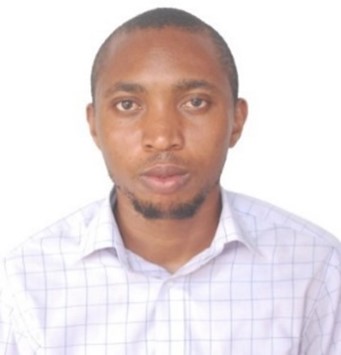
Etinosa Chris Igunbor, Western Colorado University, JFT Mentor and Inclusion Award Recipient. The pursuit of economic growth and the transition of developing countries into developed nations has resulted in the over-exploitation of natural resources through practices that cause environmental pollution and degradation. The current depletion of natural resources, such as timber, minerals, wildlife, crude oil, and others, necessitates immediate action to mitigate the negative effects of humans’ actions through the development of innovative ideas and management practices that encourage the sustainable use of limited natural resources and feasible solutions that mitigate carbon emissions locally and globally. This opportunity provides a foundational knowledge to develop critical and innovative research ideas and projects involving a collaborative team of experts in addressing natural resource conservation and the carbon market in Africa.

Maya Patel, Harvard University Kennedy School of Government, JFT Collaboration Award Recipient. A policy graduate student focused on environmental policy and writing my thesis on the UK’s new biodiversity net gain policy that will potentially create a new regulatory biodiversity offset market. My thesis is focused on looking at other environmental markets and lessons that can be applied to help the UK. Pursuing a Master’s in Public Policy with Business and Government concentration. My thesis focuses on developing policy recommendations that will foster a private market in biodiversity offsets for the UK biodiversity net gain policy. I’m a student entering this space with a background in DEI work. Much of my work in graduate school has focused on environmental policy with an aspect of environmental justice. For example, I wrote my first-year capstone paper on creating a midwestern regional carbon market and how to use a portion of the revenue generated to redistribute back to individual residents within disadvantaged and low-income communities to help offset any additional consumer costs that might be passed along as a result of a new price on carbon.
Sponsored by Craig Denisoff Consulting and supported by all sponsors. Presented by Craig Denisoff, President, Craig Denisoff Consulting
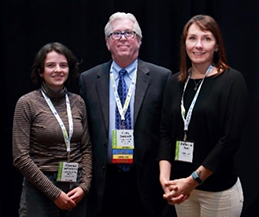
Manuela Londono-Gaviria, Masters Student, University of Mexico, JFT Mentor and Inclusion Award Recipient.. An international student from Columbia at the University of New Mexico in Albuquerque, the opportunity to participate in NMEBC is of tremendous value to expanding my knowledge of environmental banking and offsets. The dialogue among diverse stakeholders and engaging content available will further my efforts to contribute to this space of conserving and restoring wetlands and species.
Katherine Pratt, Biodiversity Fellow, Institute for Biodiversity Law and Policy at Stetson University, JFT Collaboration Award Recipient. Working with diverse organizations over my career, from the U.S. military to non-profit conservation groups, and gained an appreciation for the collaborative nature of finding solutions to complex environmental problems. Conserving shared natural resources requires that all stakeholders be heard because there is value to be found even in opposing views. By considering various positions on issues, effective policy can be developed. As a new adjunct professor teaching environmental regulation, my students will learn how important this collaboration is to developing sound policy arguments.
Sponsored by Craig Denisoff Consulting and supported by all sponsors. Presented by Craig Denisoff, President, Craig Denisoff Consulting and George Howard, Founder, Restoration Systems.
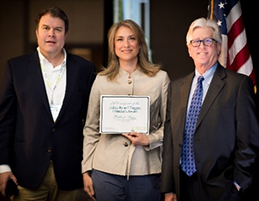
Stephanie Manes, Director of Conservation Ranchland Trust of Kansas, Inc. Topeka, Kansas, JFT Founder Award. “I was fortunate to have been a partner in the establishment of the first FWS-approved species conservation bank for the Lesser Prairie-chicken in the southern plains. As a current agricultural land trust employee, I believe that ecosystem services are THE future funding vehicle for conservation easements nationwide. Learning new skills, finding new investors, and helping to bridge the gap between traditional conservation organizations and conservation bankers is now my professional goal.”
Stephanie Manes joined Ranchland Trust of Kansas (RTK) as the Smoky Hills Project Coordinator in early 2009. A graduate of Oklahoma State University (1999), she holds undergraduate and Master’s degrees in wildlife ecology and management and rangeland ecology, and has been a professional member of The Wildlife Society and Society for Range Management for 20 years. Between 1999 and 2007, she was employed by the U. S. Fish and Wildlife Service to coordinate Farm Bill conservation programs and deliver funding to private ranchers to implement grazing plans, prescribed burning and habitat restoration on over 30,000 acres in Oklahoma and Kansas. In addition to co-authoring and collaborating on research papers on eastern wild turkeys, white-tailed deer, wood storks, wolverine and prairie-chicken, Manes has also been instrumental in the development of the North American Grouse Partnership, the first national organization to specifically address grouse conservation. Since 2009, Manes has been employed by RTK as the coordinator of the first voluntary conservation offset project for a wind energy facility in the nation. Stephanie, her husband Rob, and their two young children live south of Wamego, Kansas.
Sponsored by Craig Denisoff Consulting and supported by all sponsors. Presented by Craig Denisoff, President, Craig Denisoff Consulting and George Platt, Founder, The Wetlandsbank Group.
Dave Giordano, Executive Director, Root-Pike Watershed Initiative Network Inc., Racine, Wisconsin, JFT Founder Award. Root-Pike WIN is helping create and implement plans to improve the quality of the five watersheds in Southeastern Wisconsin. This set of solutions is born from cooperation and coordination with public and private stakeholders, and guided by recommendations found in EPA-approved, 9-key element plans specific to each watershed. More than two decades ago, we were founded by a cooperative effort with the Wisconsin Department of Natural Resources to address specific issues within the Root-Pike basin. In 2001, we became a 501c3 non-profit. Since inception, we have initiated and helped complete more than a half a million dollars in education, restoration, and monitoring projects. Today, we continue to provide education, implementation and monitoring to landowners, municipalities and the general public. We are the catalyst for projects that improve the land – and water – in the Root-Pike basin. www.rootpikewin.org
Sponsored by Craig Denisoff Consulting and supported by all sponsors. Presented by Craig Denisoff, President, Craig Denisoff Consulting
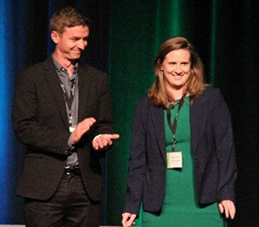
JFT FOUNDER AWARD RECIPIENTS
Robert Sean Fitzpatrick, Duke University. In the fields of conservation and mitigation, collaboration across government and the private sector is essential. I believe that conservationists must look beyond traditional methods of financing (e.g. government grants, philanthropy) and take on mitigation and restoration with an entrepreneurial lens. This method will allow conservation projects to expand beyond previous limitations and spur a movement towards sustainability among the private sector, which is responsible for upwards of 33% of global emissions. However, these changes will not occur at a large enough scale without government support, or, more realistically, government push. To solve this problem, governments and the private sector must work together to encourage international carbon trading. Developing nations cannot sustainably finance conservation through domestic taxes, and developed nations lack adequate resources for domestic carbon sequestration projects to meet emissions demands. My co-workers at the Duke Carbon Offsets Initiative and the Nicholas Institute for Environmental Policy Solutions agree. While there is a substantial amount of offset projects already in existence, the number one problem they face is finding buyers. Thus, we conclude that increased collaboration among governments and the private sector is urgently needed to support the expansion of the carbon trading industry. Multi-disciplinary conferences such as NMEBC provide an excellent platform for this integration by bringing together a variety of stakeholders from public and private sectors to discuss how they may work together towards a common goal. If I am able to attend this conference, I intend to return with a ‘State of the Policy’ report to share with my organizations, update them on our progress, and guide them towards private sector collaborators that are actively working to solve these market problems.
Victoria Gartman, Berlin Institute of Technology. During my time as Research Associate with the Berlin Institute of Technology (TU Berlin) I participated in a 3-year project compiling impacts, mitigation strategies, and planning practices on wind energy – wildlife interactions. During the course of this project we hosted the CWW15 conference, authored book publications and international peer-reviewed articles, and formally presented our research to the German Federal Government. My recent two-part publication covers world-wide used mitigation measures for all wildlife in wind energy development both on- and off-shore at planning and siting, construction, operation, and decommissioning levels. I also participated in an international White Paper on Adaptive Management for wind energy and its application at project and planning levels. Throughout my time in this project, I was fortunate to listen and speak to researchers from the US, Germany, and Europe on current research practices as well as speak to NGO, Industry, and Government representatives on mitigation policy, current issues of concern, and future research topics. My interest in this year’s conference stems from my involvement with government, scientists, and researchers on the topic of wind energy and wildlife where I experienced first-hand how the communications between each sector do not always reflect the needed outcomes. “We lack empirical data and discussion on the financial constraints and economic aspects in allowing mitigation measures to be used and become more efficient. This is crucial as the balance between economic interests and conservation interests should be placed at a higher spectrum for better mitigation strategies that benefit all stakeholders.”
Sponsored by Craig Denisoff Consulting and supported by all sponsors. Presented by three long-time steering committee members: Bob Brumbaugh, U.S. Army Corps of Engineers Institute for Water Resources, Craig Denisoff, President, Craig Denisoff Consulting and George Platt, Founder of The Wetlandsbank Group.
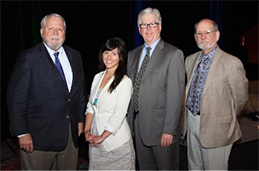
Ariadna Chavarria Resendez – PhD candidate, University of Padua, Italy. As a PhD candidates, Ariadna presented a study conducted by the University of Padua, Italy and the University of California Davis investigating the positive factors and challenges of the Conservation Banking program in the U.S. at the national level from agency staff and practitioners’ perspectives. Conservation Banking provides a mechanism for developers to mitigate their impacts on wildlife, i.e. endangered species and species of concern. This mechanism was developed after the mitigation banking program by the State of California in 1995. Later, in 2003, the U.S. Fish and Wildlife Service released a guidance document for establishment and operation of conservation banks across the nation. This study investigated the implementation of the Conservation Banking Program at national level. The objective was to assess the positive factors and pitfalls of Conservation Banking in the USA from the agency staff members and practitioners’ point of view. The study was conducted by the University of Padua, Italy in collaboration with the University of California Davis.
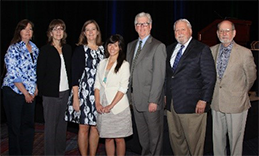
Judy’s three daughters, Sarah Crowson, Lura Svestka and Carlene Bahler were present for the inaugural award at NMEBC 2016 in Fort Worth, Texas.
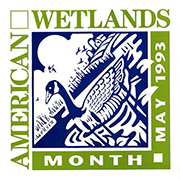
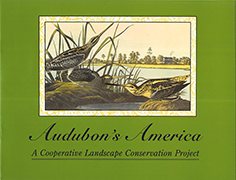


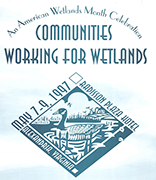
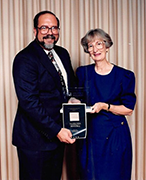
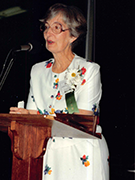
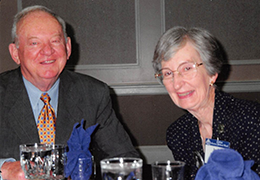

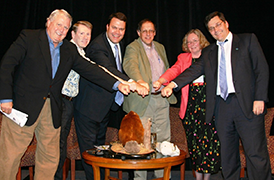
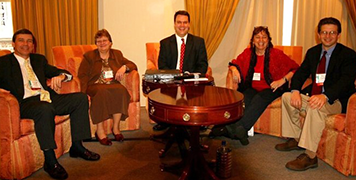
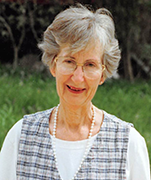
Since 2005, Sandy Creek has focused on investing in important riparian and upland resources with attractive return opportunities throughout the United States. We target habitat investments that deliver both ecological and economic returns and reject the idea that such investments must sacrifice one for the other. Our highly experienced team is user friendly and welcomes your investment ideas.
Davey partners with clients to find solutions to their specific mitigation challenges – from landowners interested in stream or wetland easements on their property to land developers with projects that impact protected water resources during construction. Our team of experts can help clients find mitigation banking credits, establish mitigation banks, complete permittee responsible mitigation projects.
TBG focuses on advancing the industry of stream and wetland restoration by actively contributing to the science, conservation, and restoration of these natural resources. TBG aims to conserve our country’s land, water, and the creatures we share them with for generations to come. We love our work and we approach each new challenge with purpose and passion.


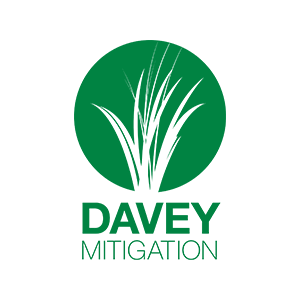
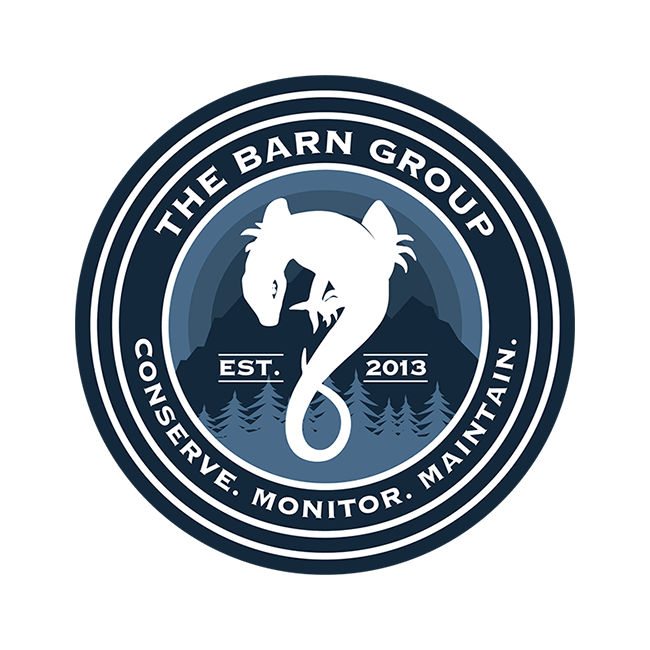
Registered trademarks and copyrights of Alliance for Environmental Markets and Investments, Inc.
Keep up-to-date with all the latest and significant updates from EMC.